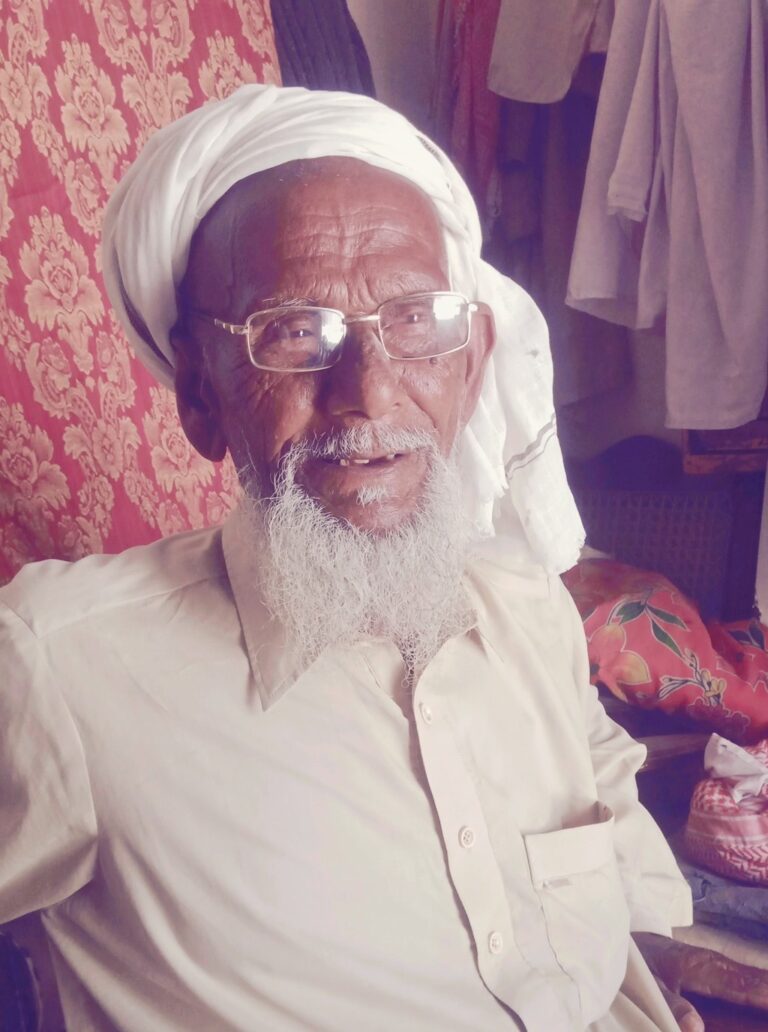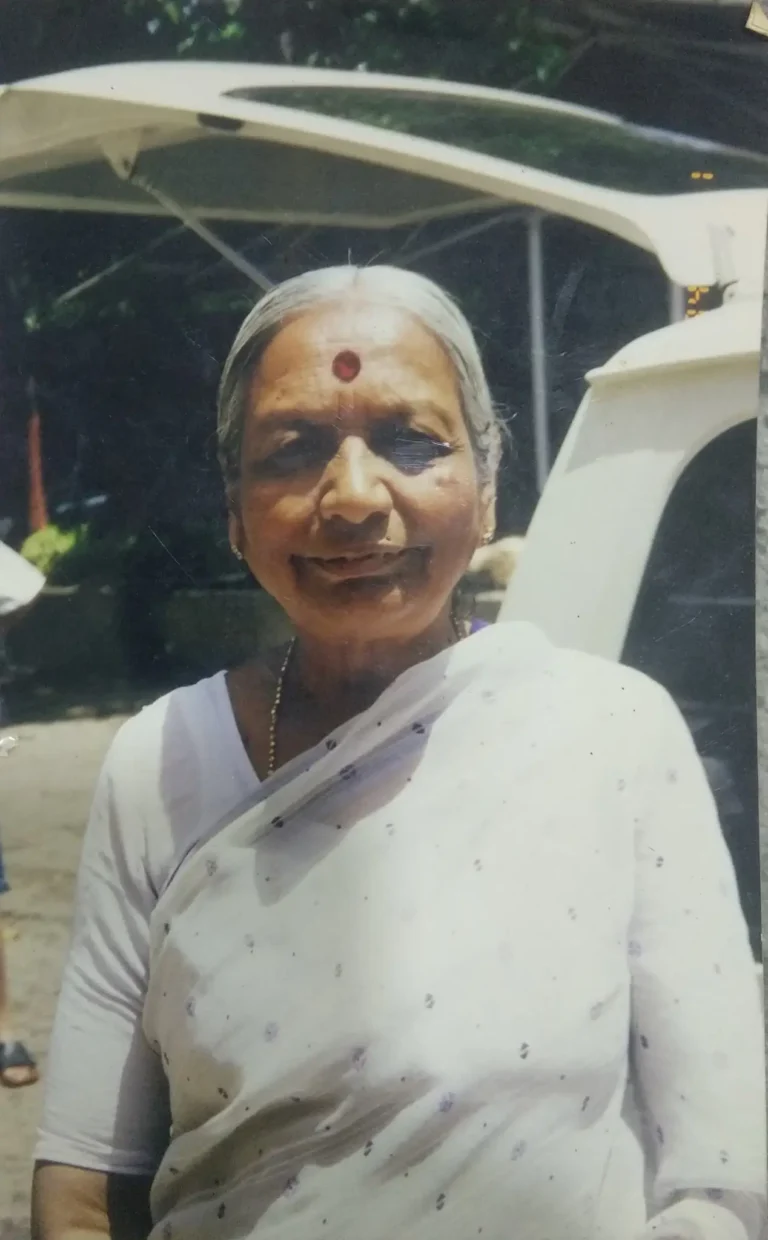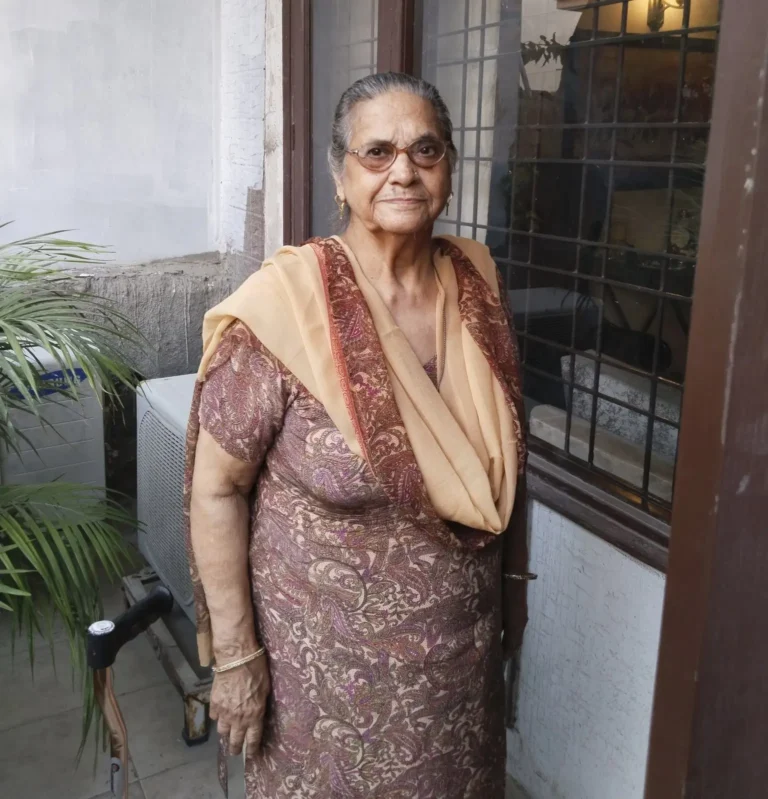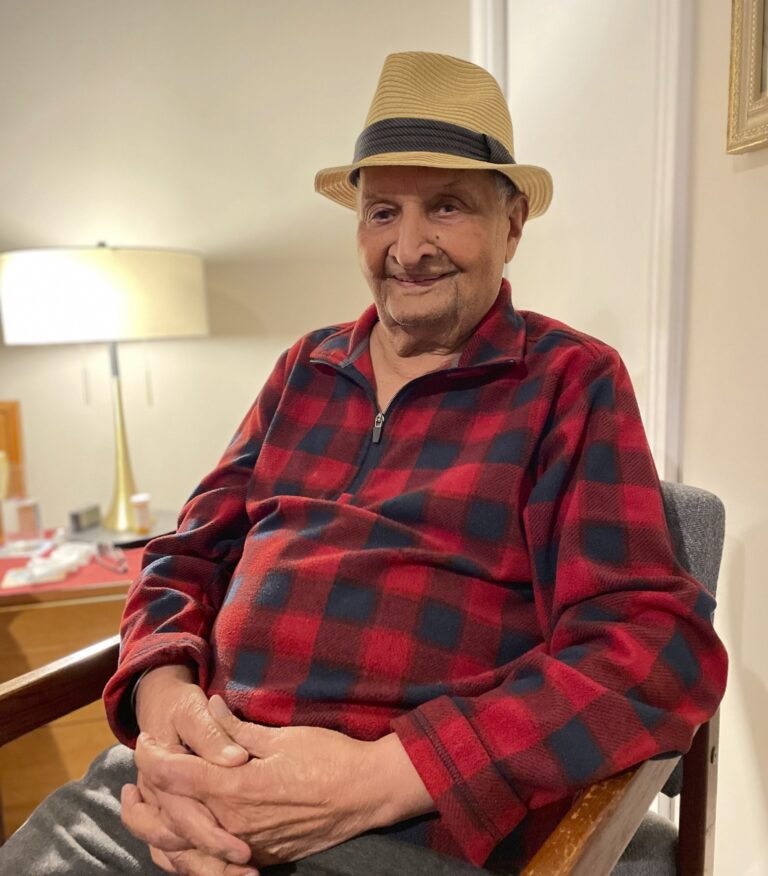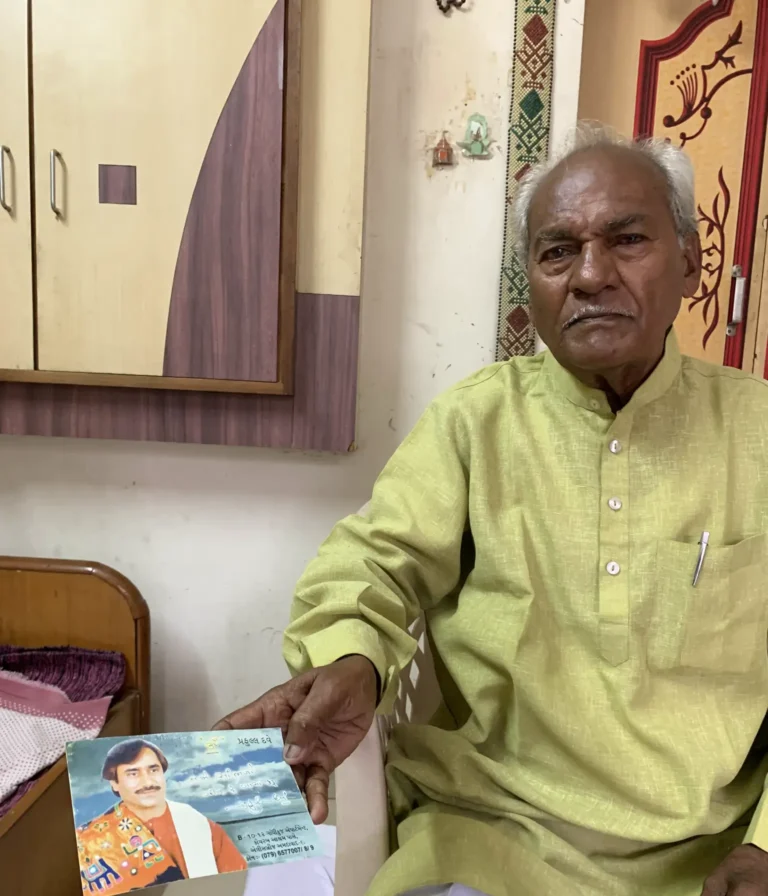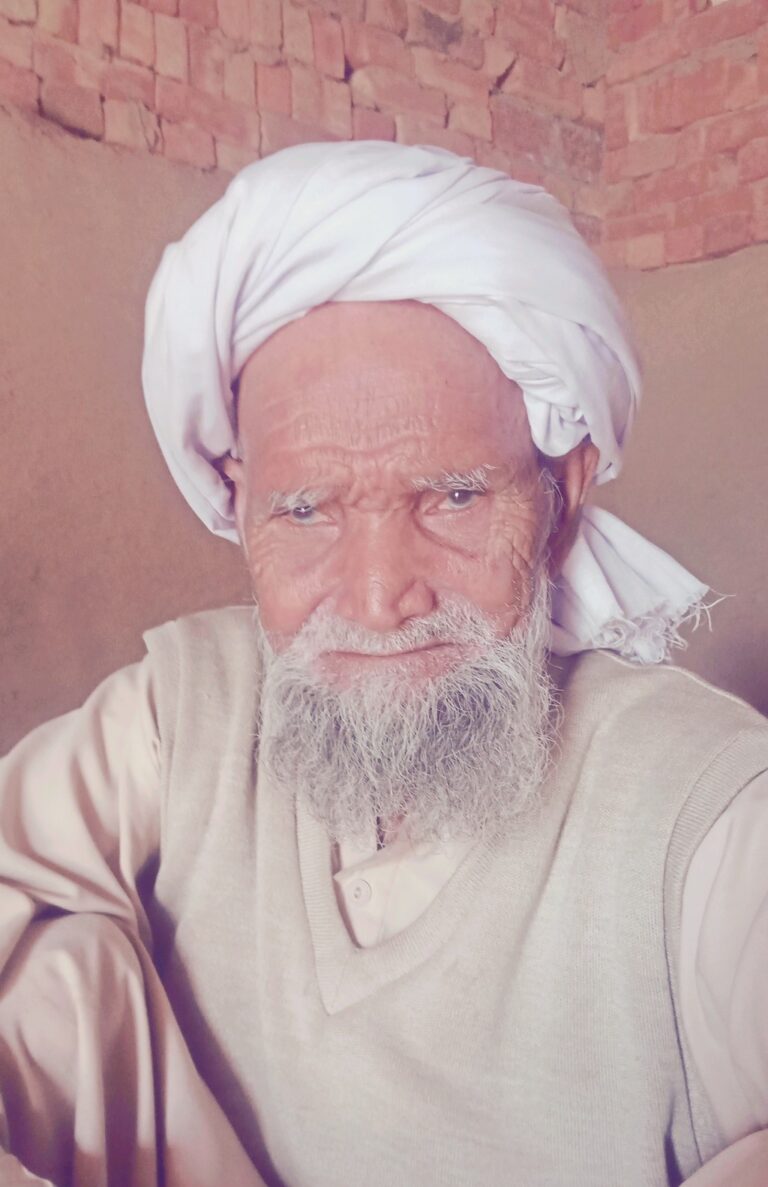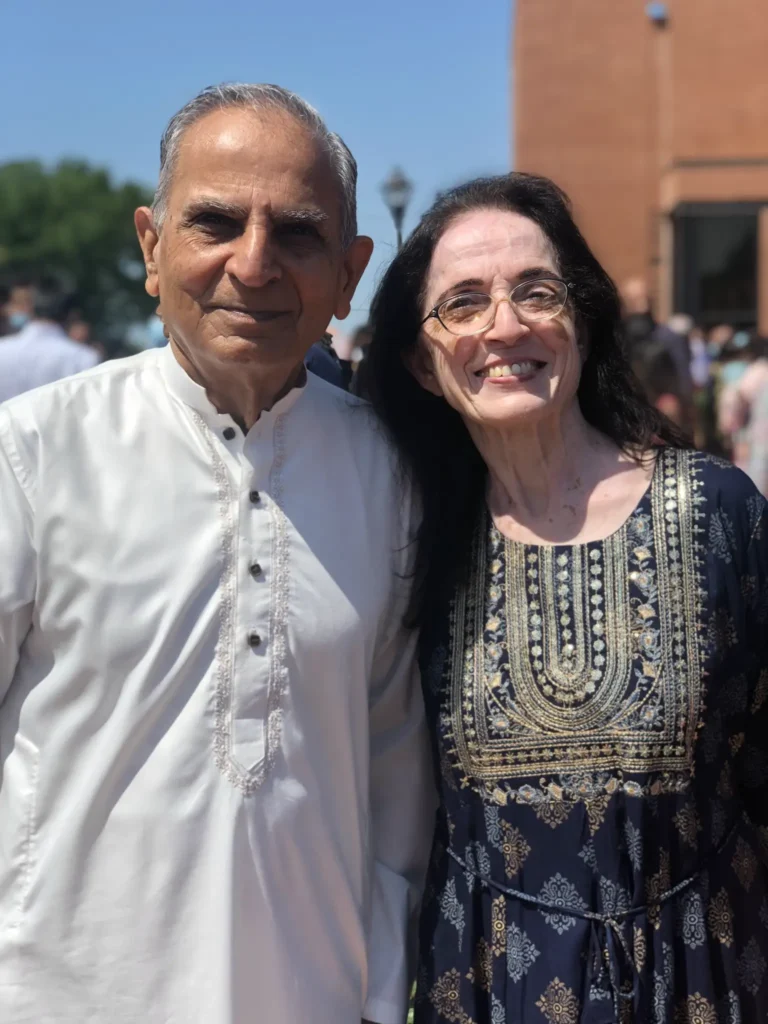Name: Sarla Dutta
Interviewed By: Sruti Lodha
Interview Date:
Interview Location:
Story:
I grew up in Mirpur, which was then under Jammu, and 15 kilometres away from Jhelum District. I grew up with two sets of parents. My biological father was a violin master and would often travel for his shows to Delhi, Bombay (now Mumbai), and Calcutta (now Kolkata). I suffered a major accident at the age of three. I fell off from the terrace of my house and directly into the drain passage running along the houses. My mother did not notice my absence or figure out that something had happened. It was my neighbour who found me and took me home. After this incident, I began staying with my neighbour, and they chose to adopt me, much to my biological parents’ discontent.
In the city area, the Hindu population was dominant. The wealthiest family in those days was a Sardar family who had a haveli (mansion) in the region. The haveli was a four-storeyed palatial mansion, with over 200 rooms and a well attached to it. The wells in the village were very deep, and there were small nahars (canals) flowing across the city and local villages. Electricity was absent in our area.
I studied till the fifth grade in a school only half a mile away. Even as little girls, we had to follow a strict code of conduct. If by mistake our dupattas slipped off our heads, a man called Prem Singh would hit us with a stick if he saw our heads naked. Women also had to wrap themselves up in a thick blanket every time they went out.
Communal harmony was at its best in Mirpur when I was growing up. My parents never restricted me from going to my friends’ or neighbours’ houses based on their caste or religion. In 1947, Mirpur was badly affected by the riots and violence that ensued. Gun-firing and fires broke out in and around the city. Although the military arrived to escort the people, for some reason, the people received little to no help at that point in time. When chaos erupted, we all began walking in the same direction, forming a kafila (caravan).
My father was killed on the way, but my mother, who survived, lost her way. However, I eventually met my mother many years after Partition. On the way, two or three other girls and I were abducted by a group of men. My abductor, Kaalu, was a father of three children. He had caught a hold of me in order to educate me and get me married to his brother. The next six to seven months were spent at Kaalu’s house. I was converted and renamed as Anwar. My days were lined up with many household and other chores, along with going to worship every single day to learn lessons from the holy book as well as Urdu. I do not feel bitter about Kaalu; Kaalu’s mother treated me nicely and I was taken care of and mingled well with Kaalu’s children.
During my daily visits to offer prayers, I befriended the daughter of the tehsildar (tax officer) of that region. At the time, all I had in my possession were two gold bangles that I wore on my wrists. During one of our conversations, the girl asked me if I wanted to go home. I gave an affirmative nod. However, the girl said that in return for her help, she wanted my bangles. I willingly took them off and handed them to her. Any cost could be paid to return home. Soon after, there was a military inspection in the village I was in. A few army officials came looking for girls who had been abducted. They came to Kaalu’s house and asked about me. Having received news of this inspection, Kaalu put 13-year-old me inside a big drum, in which he normally stored seeds. Although Kaalu was strict in his instruction for me to be absolutely quiet when they came, upon hearing their questioning, I slid my hand through an opening in the drum and screamed to make myself noticed.
After leaving Kaalu’s family, I walked as part of a 500-people strong kafila towards Datyal refugee camp. Another whole year passed by at this camp before I could be reunited with my family. During my year-long stay at the camp, Kaalu came to visit me once as well. He came and asked for Anwar. He told me, “Come back with me, the kids miss you.” However, I declined, and that was the last I saw of him.
After a year, a few people from the camp were taken to the Gujarat border, in which I was also included. A newspaper advertisement informed my family of my presence and my journey across the border. I was taken to Jammu thereafter, where my brother and uncle were living.
I was married soon after in 1950, that is within a year of having reached my home. I do not hesitate to speak of the days spent as an abductee, nor do I harbour any kind of fear. I went back to Kaalu’s village many, many years after Partition, but could not locate him.

